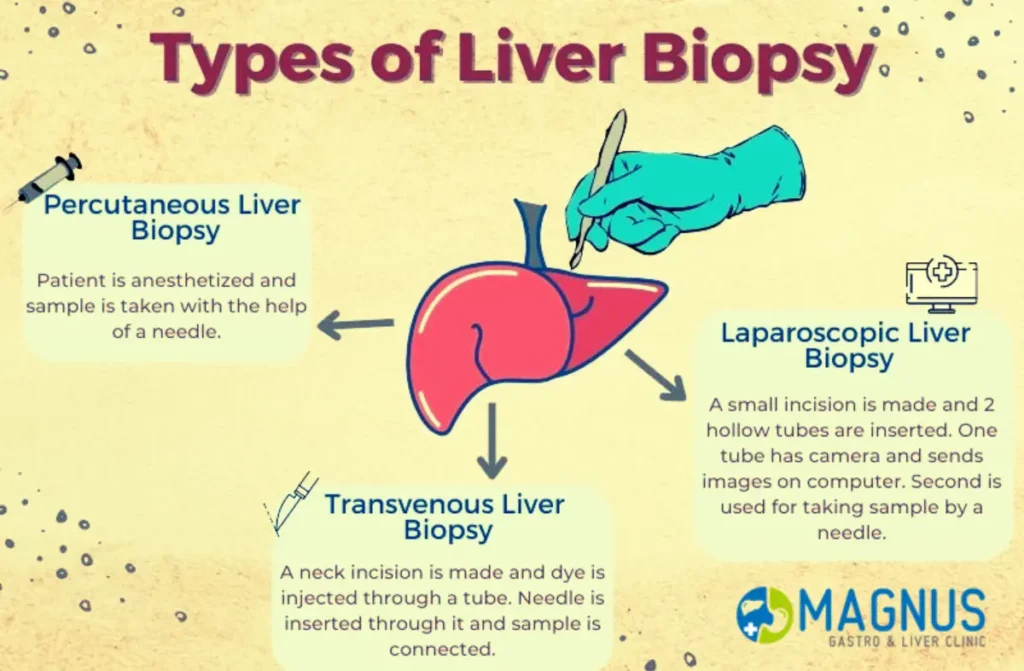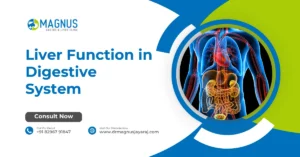A liver biopsy is an important procedure used to diagnose liver conditions. In Chennai, this procedure is commonly performed to identify liver diseases, including cirrhosis, hepatitis, and fatty liver disease. The liver biopsy in Chennai can help doctors understand the extent of liver damage and guide treatment options. However, patients often have questions about the liver biopsy cost in Chennai and the steps involved in the procedure. Knowing the details of liver biopsy in Chennai can make the process easier and less stressful for individuals seeking diagnosis and treatment.
What is Liver Biopsy?
A liver biopsy is a medical procedure where a small piece of tissue is taken from the liver to examine it under a microscope. The liver biopsy procedure in Chennai is done to detect any abnormalities in the liver, such as infections, scarring, or liver cancer. It helps doctors assess liver function and determine the best treatment options for patients. The process involves inserting a needle through the skin or using an endoscope to collect the liver tissue.
Types of Liver Biopsy
There are several types of liver biopsies performed in Chennai, each depending on the patient’s condition and the doctor’s recommendation:
- Percutaneous Biopsy: A needle is inserted through the skin to take the liver tissue.
- Transjugular Biopsy: A needle is inserted through a vein in the neck to reach the liver.
- Laparoscopic Biopsy: A small camera is used to guide the needle to collect liver tissue.
- Endoscopic Biopsy: A tube is passed through the mouth to reach the liver. These liver biopsy procedures in Chennai are chosen based on the location of the problem and the patient’s health.
Indications for Liver Biopsy
Liver biopsy in Chennai is indicated when doctors suspect certain liver diseases. Common reasons for recommending a liver biopsy include:
- Chronic liver disease: When the cause of liver damage is unclear.
- Hepatitis: To determine the stage of liver inflammation or scarring.
- Fatty liver disease: To assess the extent of liver fat accumulation.
- Cirrhosis: To check for complications and the level of liver damage.
- Liver cancer: To confirm the presence of cancerous cells. A liver biopsy in Chennai helps diagnose these conditions accurately.

Limitations and Complications
While liver biopsy is generally safe, there are some limitations and risks involved:
- Pain: Some discomfort or pain at the biopsy site.
- Bleeding: Risk of bleeding after the biopsy.
- Infection: There is a small risk of infection at the biopsy site.
- Inability to collect a sufficient tissue sample: Sometimes, the biopsy may not provide enough tissue for an accurate diagnosis. Patients should discuss these risks with their doctor before undergoing a liver biopsy in Chennai.
Liver Biopsy Procedure
The liver biopsy procedure in Chennai is typically performed as an outpatient procedure. Here’s what to expect:
- Preparation: You may need to fast for several hours before the procedure.
- Anesthesia: Local anesthesia is used to numb the area where the needle will be inserted.
- Needle insertion: A needle is used to collect a small sample of liver tissue.
- Post-procedure care: You may need to rest for a few hours after the biopsy, and the doctor will monitor you for any complications. The procedure generally lasts 15-30 minutes.
The Importance of Liver Biopsy in Diagnosing Liver Diseases
Liver biopsy in Chennai plays a crucial role in diagnosing liver diseases by providing valuable information about the liver’s condition. It helps doctors:
- Assess the level of liver damage.
- Determine the underlying cause of liver problems.
- Decide on the best course of treatment. Without a liver biopsy, doctors may rely on other tests, which might not be as accurate in diagnosing liver conditions.
Different Techniques for Liver Biopsy
In Chennai, different techniques are used for liver biopsy, depending on the patient’s condition and the expertise of the doctor. These include:
- Needle biopsy: Commonly used for its precision in accessing the liver tissue.
- Endoscopic ultrasound-guided biopsy: Provides clear imaging to guide the biopsy.
- Laparoscopic biopsy: Involves a camera to guide the biopsy, often used for difficult-to-reach liver areas. These methods help in obtaining accurate results to diagnose liver problems, with cost of biopsy in Chennai varying based on the technique used.
Interpreting Liver Biopsy Results
After the liver biopsy in Chennai, the tissue sample is sent to a laboratory for analysis. The results help doctors:
- Assess liver inflammation, liver fibrosis, or cirrhosis.
- Determine the type of liver disease.
- Guide treatment options. The liver biopsy cost in Chennai can vary depending on the complexity of the analysis, but it is a crucial step in understanding liver health.
Risks
Though liver biopsy in Chennai is relatively safe, it does carry some risks:
- Internal bleeding: A potential risk after the biopsy, especially if the liver is damaged.
- Infection: Small risk of infection at the site of the biopsy.
- Hematoma: A bruise or swelling at the biopsy site. Patients should be aware of these risks and discuss them with their doctor before proceeding with the biopsy.
Benefits
Liver biopsy in Chennai provides several benefits:
- Accurate diagnosis: Helps doctors understand the exact nature of liver disease.
- Guides treatment: Provides information to create a personalized treatment plan.
- Tracks disease progression: Can assess how well treatment is working over time. While the procedure involves some risks, the benefits of obtaining accurate information about liver health outweigh the potential complications.
Conclusion
Liver biopsy in Chennai is a key diagnostic tool for assessing liver health. It helps doctors accurately diagnose conditions like cirrhosis, hepatitis, and liver cancer. While there are some risks involved, the benefits of the procedure—accurate diagnosis, treatment guidance, and disease management make it invaluable. If you are considering a cost of biopsy in Chennai, it’s essential to discuss the procedure, liver biopsy cost in Chennai, and any concerns with your healthcare provider.
Read Also: Fatty Liver While Pregnant




